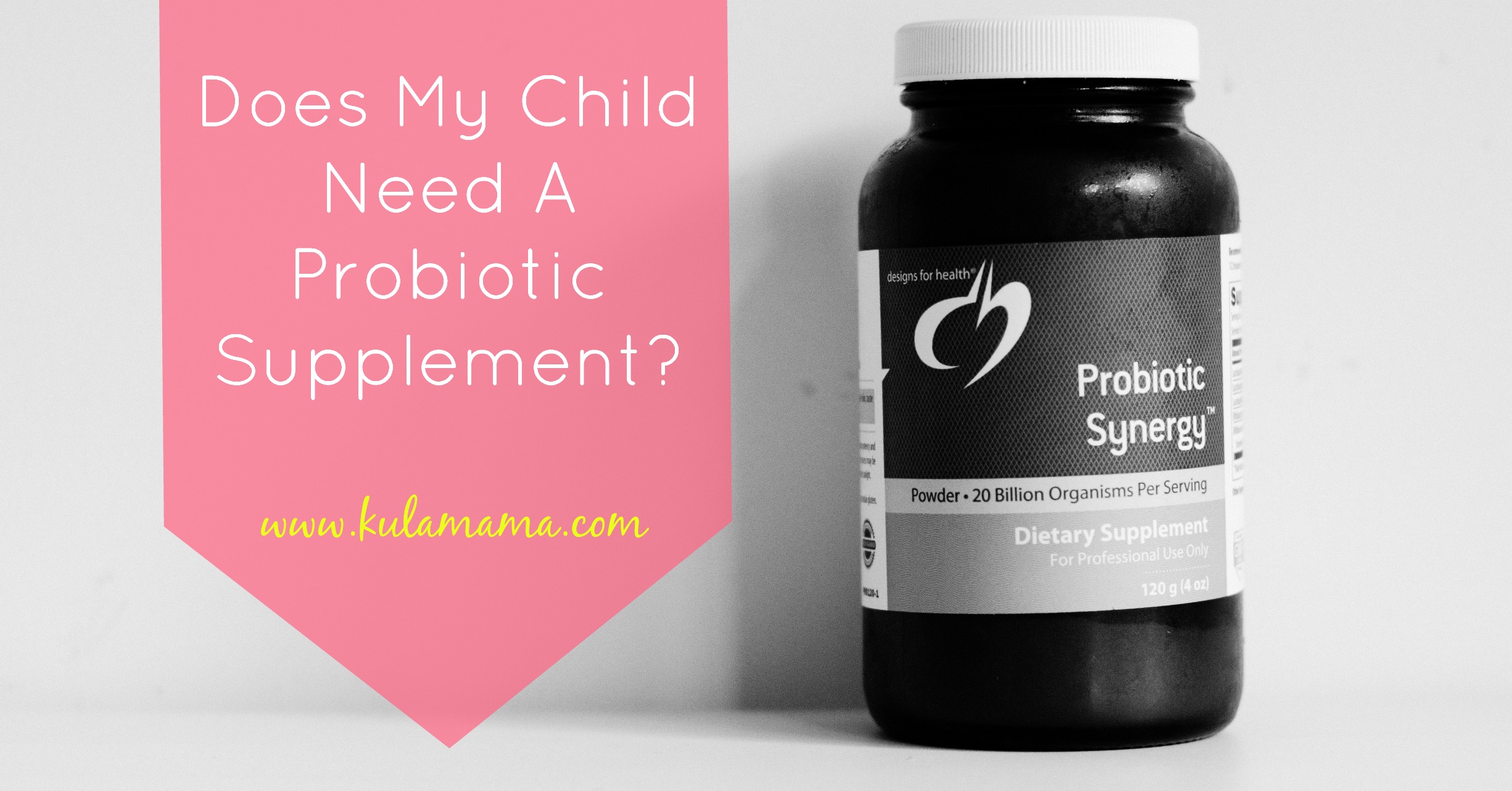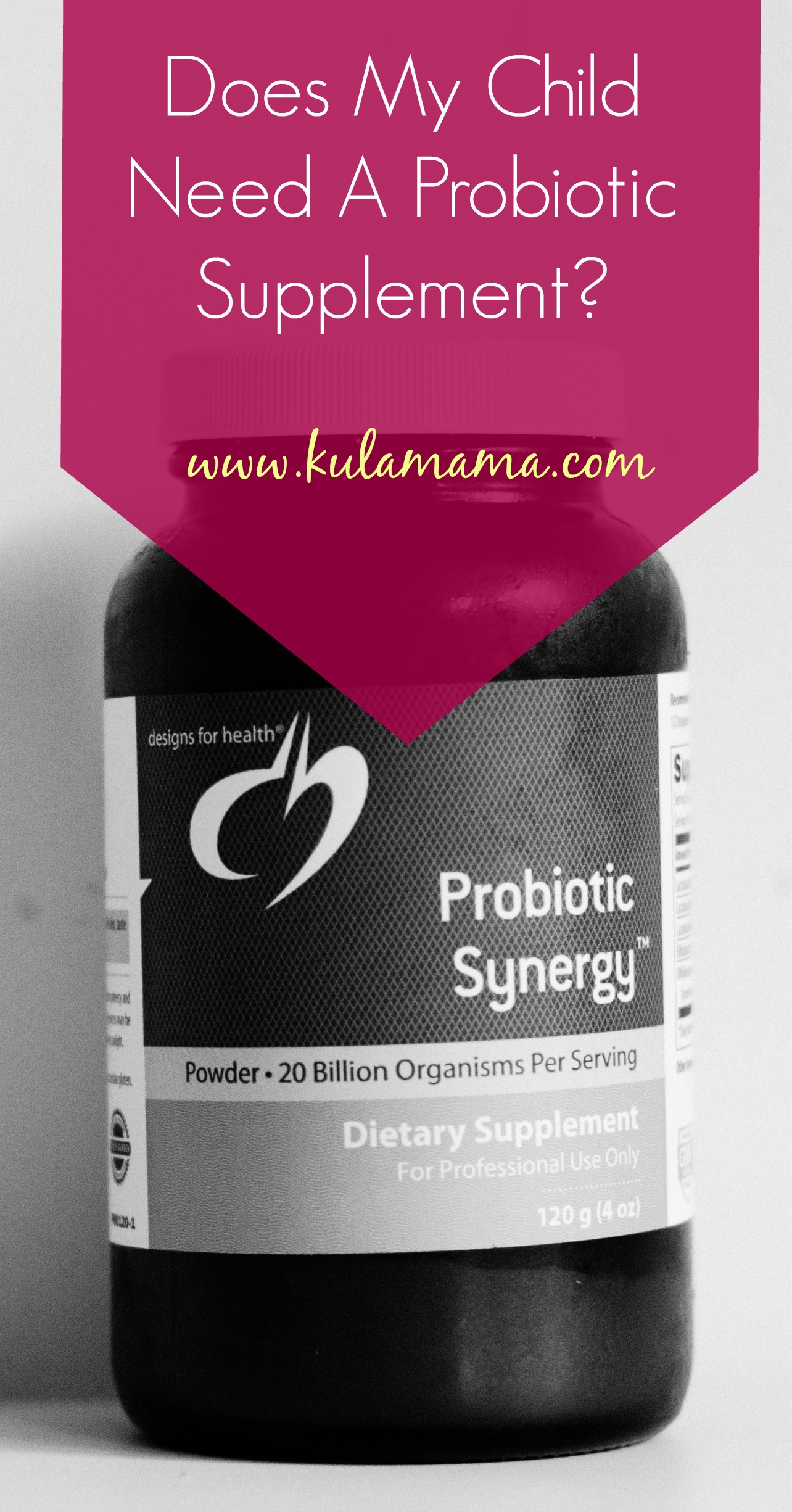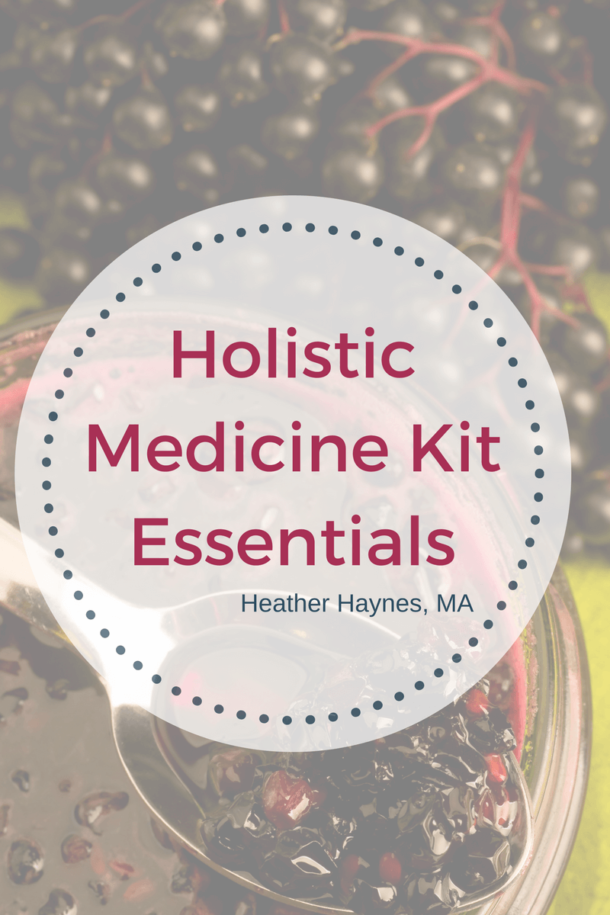Probiotics are front and center in the holistic health spotlight right now. Walk down any health food store aisle and you will see countless probiotic supplement brands for adults and children alike. Supplements can be expensive, so does your child need a probiotic supplement?
What are Probiotics?
Probiotics are the healthy (or friendly) flora that populate our digestive tract and help to support life (pro meaning for and biotics meaning life) of microorganisms. The healthy flora in our digestive tract help us to digest food, absorb minerals, eliminate toxins, and ward off viral and bacterial issues. Probiotics tell the immune system that all is well in the body. Properly balanced gut flora makes the immune system very, very happy. (source 1, source 2)
Populating the Digestive Tract Starts at Birth
When a baby is born, the mother passes on strains of microflora as the little one passes through the birth canal. Shortly after birth, babies pick up healthy flora through breastfeeding. Alternatively, babies born via c-section enter the world with a sterile gut, and pick up bacteria from the doctors and nurses who care for them instead of from the mother’s birth canal. (source) For this reason, if a baby is born via c-section, it is beneficial to offer him high quality probiotics almost immediately to help populate his digestive tract with healthy flora, instead of letting his hospital environment do the job . Why is this important? Because babies who are unable to colonize the right balance of healthy flora are more likely to exhibit colicky symptoms like gas, eczema, constipation and diaper rash in the short-term, and are also more likely to develop asthma and allergies later in life. (source
) A healthy balance of flora in the digestive tract is the key to a happy, healthy, thriving baby.
What’s the Difference Between Prebiotics and Probiotics?
Prebiotics work similarly to probiotics in that they increase the absorption of minerals and help to keep the right acid balance in the gut. Prebiotics are sugar molecules that serve as food for the healthy flora in our digestive tracts. I think of prebiotics like “fertilizer” in a garden and probiotics like “seeds” in a garden. Both work together to allow food to grow and both need each other to thrive. Prebiotics are found naturally in our food supply. Foods like honey, chia seeds, onions, kefir, yogurt (real cultured yogurt), bananas, garlic, green tea and asparagus all contain prebiotics naturally. However, prebiotics alone won’t do the job—the food in your garden won’t grow with fertilizer (prebiotics) alone, you need to plant the seeds (probiotics) first! Probiotics are necessary to ensure a healthy balance of gut flora.
Living in an Antibiotic World
So once your baby has a healthy, colonized gut, how do you make sure it stays that way? Good question. Our environment is FULL of antibacterial components that not only kills bad bacteria, but also kills off the good bacteria too. When children use antibacterial soap products, eat conventional meat (packed full of antibiotics), take antibiotics internally, or drink chlorinated water (to name only a few bacteria killers) the healthy bacteria is destroyed along with the unhealthy bacteria. As a result, an imbalance of flora called dysbiosis can occur. When dysbiosis develops, the intestinal lining is compromised and the immune system becomes impaired leading to all sorts of problems like; leaky gut syndrome, constipation, autoimmune disease, poor immune function, poor nutrient absorption, inflammation, eczema, food allergies and sensitivities, candida, and so much more! (source 1, source 2) So as you can see, it’s important to keep a proper balance of healthy bacteria in the gut to ensure a happy, healthy immune system (and a happy, healthy kid). Because we are constantly faced with bacteria killers in our day-to-day lives (let’s face it, our kids likely use antibiotic soap even if we try to avoid it, and they eat conventional meat from time to time, and they may even need antibiotics at some point despite our best efforts—these things are a part of life.) it is important to make sure our kids are getting a constant supply of healthy bacteria too.
Traditional Methods of Fermentation for a Healthy Gut
Probiotic supplements are not the only way to guarantee your child is getting a daily dose of healthy bacteria. Traditionally, many cultures prepared foods in a way that preserved them before refrigeration existed. Cultured or fermented dairy products like yogurt, kefir, whey, raw cheese and raw milk provided many vitamins and minerals along with a good dose of healthy bacteria to our ancestors. Vegetables like cabbage, cucumbers, beets, carrots and peppers were also preserved through lacto-fermentation. These fermented foods are still easy (and inexpensive!) to make today and naturally provide the healthy bacteria we need to stay healthy.
What About Probiotic Supplements?
So knowing why probiotics are so important to our overall health, you may opt to give your child a probiotic supplement. As usual in the world of supplements, the quality and price vary greatly. It is important to pick a supplement with living, viable bacteria that will adhere to the digestive tract and will not get destroyed by the process of digestion. For children it is especially important to look for a probiotic with Lactobacillus acidophilus and Bifidobacteria infantis strains of bacteria. Look for a high-quality product that is produced by a respected company, preferably one that is backed by clinical trials like this one.
This article was published on the Healthy Living How To website, go check out all this wonderful website has to offer.
How do you get healthy probiotics into your child’s diet? Tell me in the comments section below!




what brand of probiotic do you take?
Right now my kids are taking a powdered probiotic from Designs for Health but we switch it up from time to time too.
October 25, 2012I use the ones from Jarro-Dophilus (available at health food steors). And the ones from Innate are also very good (available online). Try taking them at night before going to sleep. They are known to help heal and repopulate your bowels with beneficial bacteria. It helped me with my digestive issues years ago. !